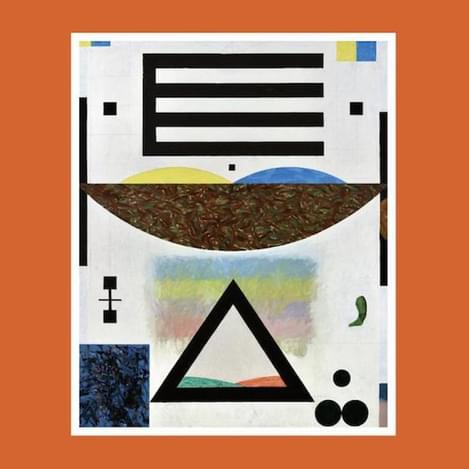Frog Eyes emerge triumphant out of dark few years
"Pickpocket's Locket"

Frog Eyes bandleader and Victoria, B.C. native Carey Mercer lists Beuys among his influences and inspirations on the group’s latest record, Pickpocket’s Locket. The circumstances preceding the album’s recording would suggest that Mercer himself has been struggling with the presence of a (less tangible) beast: death and loss. His father passed away just prior to the release of Frog Eyes’ last record Carey’s Cold Spring, and Mercer was diagnosed with throat cancer shortly after. The frenetic pace of Pickpocket’s Locket reflects just how turbulent his past couple of years have been.
As always, Mercer’s intricate lyrics form the centrepiece of each track like a gnarled backbone. Elements of song structure — verses, choruses, bridges — are vaguely discernable. Mercer’s narratives are renowned for their wandering ways, and his band’s instrumentals for following suit. And while his voice often proves to be Frog Eyes strongest asset, it verges on omnipresent across Pickpocket’s Locket. Some of the profundity of the record — its anguish and its eloquence — is lost in Mercer’s rapidfire delivery. Sonically speaking, it perhaps needs more space: tensions that have accrued need releasing and dust that has been stirred needs stillness to settle.
The album opens with the pedal steel-tinted “Two Girls (One For Heaven and the Other One For Rome)”. Mercer’s long-time partner Melanie Campbell has once again assumed drum duties for Frog Eyes following a hiatus, and her nuanced take on rhythm — more punctuation than percussion — enhances the song’s meandering character. Frequent collaborator and sometime band member Spencer Krug (the creative powerhouse behind Moonface, Sunset Rubdown and Wolf Parade) composed the record’s string arrangements. “Joe with the Jam” proves to be the highlight of his contributions, with orchestral segments lending something softly cinematic to the surreal tune; there is space here, and simplicity. Mercer’s unexpectedly distinct refrain, (“someone out there wants to know who you are”), is only complemented by Krug’s ascending fiddle lines.
Instrumentally speaking, Pickpocket’s Locket frequently makes use of Americana motifs: drums played with brushes, yearning pedal steel guitars, and piano flourishes. Mercer’s winding narratives are a fascinating addition to the mix and succeed in constantly subverting listeners’ expectations. The introduction to “The Beat Is Down (Four Wretched Singers Beyond Any World That You Have Known)” promises a downtempo, Country-inflected ballad, but Mercer’s first line—”the fiery tendrils of educate blue-blood run”—shatters the precedent. “In A Hut” showcases a similar juxtaposition: the music is sedate, but the lyrics that accompany it are delivered with furious precision.
Mercer emotes at a very similar frequency across the entirety of the record—his voice has not lost any of its vitality and, where timbre is concerned, he continues to sound like a hyper-eloquent, glam-era Bowie. Frog Eyes have always (knowingly) left themselves vulnerable to accusations of grandiosity, though they’ve never quite achieved the levels of bombast that, say, Arcade Fire have reached. But gone are the days of the Frog Eyes concept album; Mercer has allowed his lyrics to become more expansive and less cohesive. For this reason, they need room to resonate, to sink in. “Rip Down the Fences That Fence in the Garden” is the album’s coda and, arguably, its biggest triumph. Mercer’s diction is spacious and full as he waxes poetic on porous borders and endangered idylls: “well it’s four in the morning/and the border keeps twinkling/as the trucks stretch into light”, he sings as Krug’s strings climb to a euphoric crescendo. There is pain in the record’s final minutes, and redemption; there are tears on the floor, as well as shafts of St. Peter’s light. As they emerge out of the darkness, Frog Eyes have never sounded so alive.
Get the Best Fit take on the week in music direct to your inbox every Friday

Great Grandpa
Patience, Moonbeam

Deafheaven
Lonely People With Power

Perfume Genius
Glory





